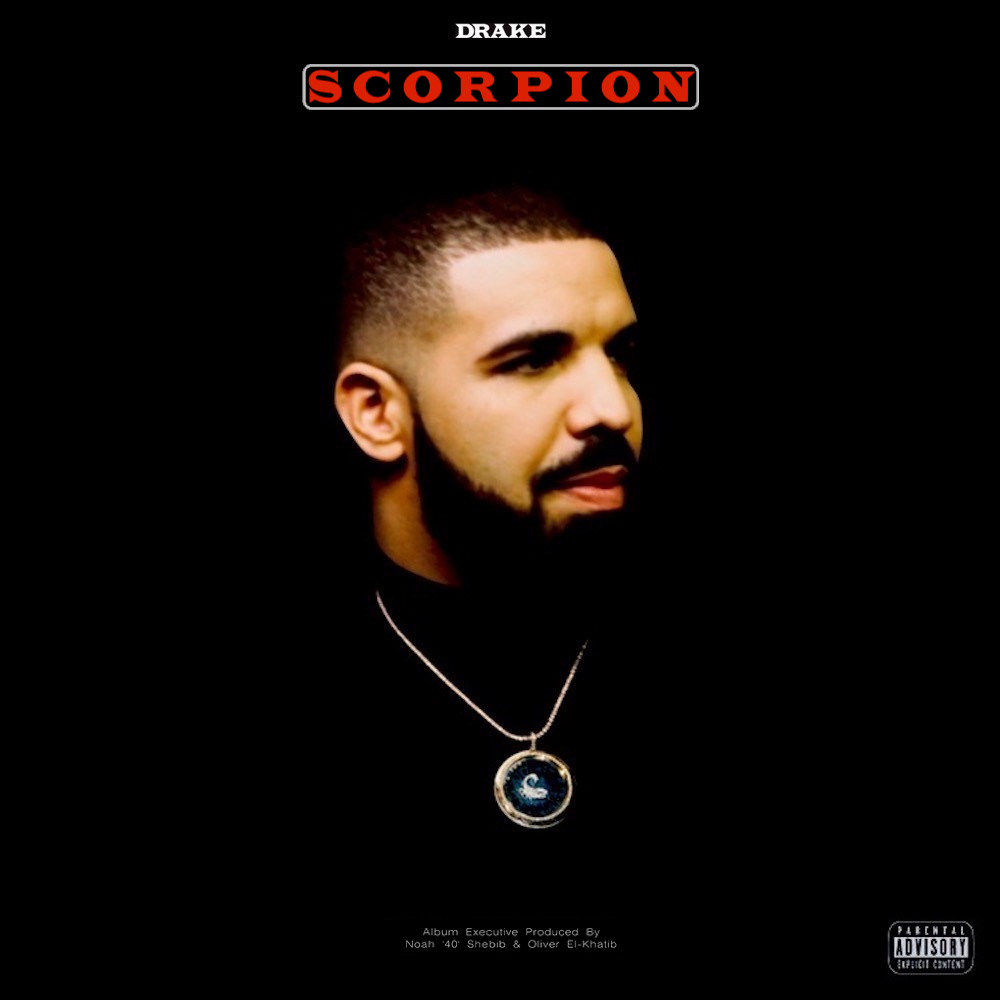



“I don’t know who love me, but I know that it ain’t everybody … I’ve been losin’ friends and findin’ peace / Honestly that sound like a fair trade to me.” The same is true of 7am on Bridle Path, in which he addresses the hypocrisy of accusations that he uses ghost writers: “You boys reachin’ new lows / Lettin’ me take the rap for that Casper the Ghost shit / While you findin’ all of the loopholes.” That said, the brilliant Fair Trade, featuring Travis Scott, offers a glimpse at the sort of maturity Drake exhibited on March 14: “Look, don’t invite me over if you throw another pity party / Lookin’ back, it’s hard to tell you where I started,” he raps over a twisted choral backdrop. The fiery No Friends in the Industry is an obvious swing back at regular antagonists Pusha T and Kanye West, whom Drake suggests “turned me evil” over a grimy pronounced beat and ominous, repetitive synths. On the sparse and underwhelming Love All, which features a sleepy, barely present verse from Jay Z, Drake laments people’s lack of loyalty when you’re on top (“People never care ‘til it’s RIP”). Similarly, there’s a preoccupation with unnamed haters, whose ubiquitous presence provokes scorn, sneering condescension or genuine hurt and concern. Built around a bombastic sample from the Brothers of Soul’s Can’t Get You Out of My Mind, You Only Live Twice is all ego: it opens with a spit-fire verse from Floridian titan Rick Ross, then Drake takes up the baton, boasting “Catalogue is immaculate … Not sure if you know but I’m actually Michael Jackson / The man I see in the mirror is actually goin’ platinum.” “I’m standing at the top, that’s how I know you never seen the top,” he remarks after the song’s intro.

Interpolating Montell Jordan’s Daddy’s Home on the punchy Papi’s Home, Drake subverts the former’s remorsefulness into a braggadocio comeback banger. What this often entails is the 34-year-old asserting his dominance. Any sign that Drake might finally be ready to move on from his oeuvre-defining solipsism, self-pity, passive-aggression, anodyne feuds and his inability to be romantically available is a sleight of hand: Certified Lover Boy is not just more of the same, but nearly 90 minutes of Drake being, well, Drake. “I’m makin’ the most of this shit,” he says, “and more.” Lamenting the pitfalls of fame (“I can’t even RIP and show my remorse to the homie … I even got the cleanin’ staff plotting extortion on me”) and media attention (“I always censor myself ’cause no matter what, they reporting on me”), he seems to come to the realisation that, actually, life for Drake, the bestselling solo artist of modern times, isn’t actually that bad. While there’s some typical overblown self-aggrandisement to begin with, Champagne Poetry – a curious two-parter that interpolates Michelle by the Beatles as sampled in Masego’s Navajo – is honest without Drake’s usual prerequisite for pity. This emotional growth also seems apparent on the opener of Drake’s much-delayed sixth album.


 0 kommentar(er)
0 kommentar(er)
